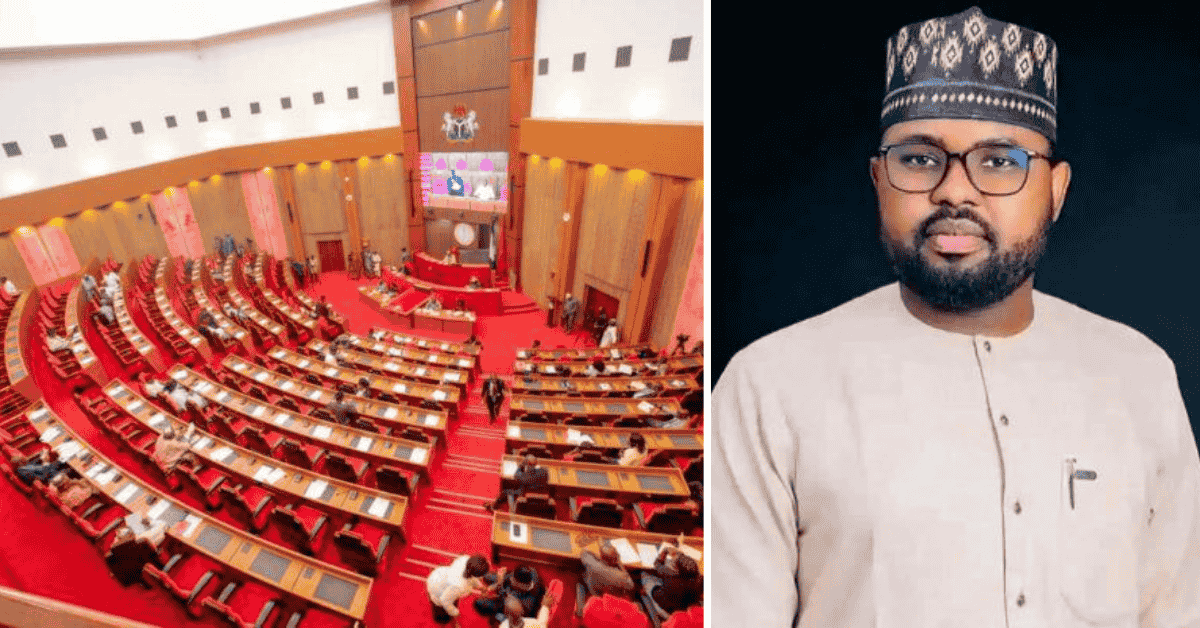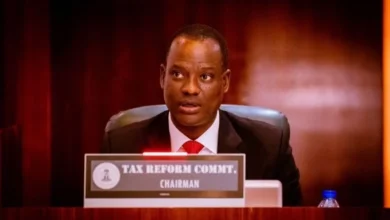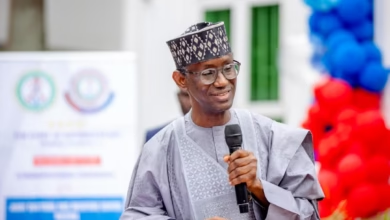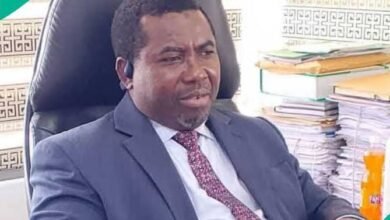
On 7 August 2025, President Bola Ahmed Tinubu formally nominated Engr. Dr. Abdullahi Garba Ramat to serve as Chairman and Chief Executive Officer of the Nigerian Electricity Regulatory Commission (NERC). The presidential statement directed him to assume office in an acting capacity pending confirmation by the Senate of the Federal Republic of Nigeria (Senate).
Since then, although the Senate has screened the nominee, it has not formally remitted or pronounced a confirmation decision to the Presidency. In addition, a reliably confirmed source has disclosed that the Senate’s Committee on Power has in fact conducted the screening exercise on Dr. Ramat and has issued a favourable report, cleared him unanimously, which is now being held back from transmission to the Presidency. The source alleges that some influential Senate figures, with personal interest in the position are blocking the release of the report.
This raises pressing constitutional and governance questions: Does the absence of a formal Senate pronouncement amount to non-approval, or is the nomination effectively deemed approved by virtue of the President’s action and the unanimous report by the committee? Under Section 171 of the Constitution of the Federal Republic of Nigeria, 1999 (as amended), the President has the power to appoint persons into key public offices, subject in some cases to Senate confirmation.
For NERC, the Electric Power Sector Reform Act, 2005 provides that the Chairman and Commissioners shall be appointed by the President, subject to confirmation by the Senate. Thus, the legislative confirmation requirement embodies the separation of powers: the President proposes, the Senate disposes. However, the Constitution and the enabling Act are silent on the effect of legislative inaction.
This legislative silence creates an institutional vacuum that frustrates governance and undermines the principle of checks and balances. From a purposive interpretative approach, as upheld in Attorney-General of Bendel State v. Attorney-General of the Federation, constitutional provisions must be read in a manner that advances good governance and avoids absurdity. Applying this reasoning, a presidential nomination that has passed through the due process of screening and enjoys a positive committee report should be deemed to subsist.
To hold otherwise would enable legislative inertia to paralyze the executive, contrary to the intent of Sections 5 and 171 of the Constitution, which vest the President with the executive powers necessary to maintain the continuity of government. Additionally, the doctrine of necessity recognized by the courts in A.G. Federation v. Abubakar (2007) 10 NWLR (Pt.1041) 1 permits pragmatic steps to ensure governance does not grind to a halt due to procedural stalemates. Silence is not a constitutional act; it cannot create a vacancy, nor extinguish an appointment validly initiated by the President.
Equally persuasive is the principle of implied approval in public administration. Where a body is empowered to act but fails to do so within a reasonable time, the law presumes that the failure should not defeat another organ’s lawful exercise of power. The Supreme Court in Ladoja v. INEC (2007) 12 NWLR (Pt.1047) 119 emphasized that procedural lapses should not be allowed to frustrate substantive justice or the stability of governance. By parity of reasoning, the Senate’s delay in confirming Engr. Ramat should not invalidate his nomination, particularly where the committee’s clearance has affirmed his competence and suitability.
To the contrary, legislative silence in this context represents an institutional failure that undermines both public confidence and the separation of powers. The power of confirmation was never intended to serve as a weapon of delay or political leverage; it was meant to ensure accountability and competence in public appointments. Where those objectives have been met, continued silence becomes an abuse of process and a disservice to governance efficiency.
According to reliable sources familiar with the proceedings, the Senate Committee on Power has already concluded the screening of Engr. Dr. Abdullahi Garba Ramat. The committee, after a thorough evaluation of his credentials, experience, and performance during the screening session, reportedly issued a unanimous report affirming his competence, integrity, and fitness for the position of Chairman and Chief Executive Officer of the Nigerian Electricity Regulatory Commission (NERC).
Every member of the committee was said to have endorsed the report without dissent, describing Dr. Ramat as a professional with the technical depth and administrative capacity needed to reposition Nigeria’s electricity regulatory framework. However, despite the completion of this process, the committee’s report has remained pending, awaiting formal presentation to the Senate in plenary and transmission to the Presidency. Insiders allege that the report’s release is being deliberately delayed due to political interests and internal power plays within the upper chamber.
This factual circumstance deepens the legal inquiry: Not only is the Senate delayed or silent, but the committee has in effect taken the affirmative step of endorsing the nominee, yet the full Senate has not processed the report or formally confirmed him.
Given this scenario, it is instrumental at this juncture to consider two competing interpretative doctrines. Under the Constructive Approval View, once the President nominates, and the Senate (or its committee) screens and issues a favourable report (even if not formally transmitted), the nomination can be treated as deemed approved, particularly if the Senate fails to act within a “reasonable time”.
Silent or indefinite inaction should not paralyse executive functions especially when institutional continuity is at stake. Indeed, the committee’s positive report supports the proposition that the nominee is fit. The presumption of regularity favors continuity of appointments unless the Senate expressly rejects the nominee.
Conversely, the Formal Approval view holds that confirmation must be an affirmative act of the full Senate via resolution; mere screening, even with a favourable report, is not sufficient to constitute confirmation. The Constitution and statute require the Senate’s action, not just the committee’s, and silence cannot be converted into approval by implication.
In this view, the nominee remains in limbo until the Senate votes or transmits a resolution. The blocking by a powerful Senator thus becomes material to the lawfulness of any exercise of the office beyond the acting capacity.
The framers of the Constitution intended confirmation to act as a check, not a tool of obstruction. The factual detail that a single influential Senator is holding up the process for personal interest raises serious concerns: the Senate is not just delayed one member appears to be exercising a veto by inaction. When a committee has done its job and issued a favourable report, and the nominee is ready, the continued blockage threatens the constitutional balance and the raison d’être of the oversight function becomes subverted into a power play.
The delay in confirming a chairman for NERC at this time has real-world consequences: regulatory uncertainty, investor caution, stalled reforms in the electricity sector, and a sense of institutional drift. Dr. Ramat, whose background (40 years, engineering/training credentials) signals a new generation of leadership remains in acting capacity only.
Given the screening and committee clearance, leaving this issue unresolved undermines both the legitimacy of the regulatory regime and signals that procedural manoeuvring trumps merit.
From the political viewpoint, Engr. Dr. Abdullahi Garba Ramat’s situation is even more perplexing. Being a proud son of Kano State, one would ordinarily expect a smooth confirmation process, particularly as the Deputy Senate President, Senator Barau I. Jibrin, also hails from the same state and is widely respected for his consistent advocacy in promoting the interests of his constituents at the federal level.
It therefore defies political logic that a nominee from his home state, especially one reportedly cleared and unanimously endorsed by the Senate Committee on Power, would remain in limbo.
This unusual delay naturally provokes questions: What undercurrents are at play? Why has the Senate withheld action on a report already concluded? Such silence not only fuels speculation of political interference but also underscores the urgent need for transparency and institutional accountability in the confirmation process.
In conclusion, the unfolding facts surrounding the nomination of Engr. Dr. Abdullahi Garba Ramat, his nomination by the President on 7 August 2025, subsequent screening and unanimous clearance by the Senate Committee on Power, the preparation but withholding of the committee’s report, and the Senate’s persistent silence, crystallize a pivotal constitutional question: Does legislative inaction amount to non-approval, or does a valid nomination, coupled with successful screening, mature into a deemed confirmation?
A purposive interpretation of the Constitution, one that respects the delicate balance between executive initiative and legislative oversight, suggests that such a nomination remains presumptively valid until expressly rejected. This view preserves operational continuity in governance while honouring the Senate’s role of check and balance. However, where silence lingers without statutory guidance, legal uncertainty and administrative paralysis inevitably follow.
The present stalemate underscores an urgent need for legislative reform or judicial pronouncement to clarify this grey area.
Only through clear constitutional interpretation and responsible legislative conduct can Nigeria safeguard institutional integrity, good governance, and the supremacy of the rule of law.
To prevent future institutional gridlocks of this nature, a set of clear legal and policy measures is urgently required. Legislation or Senate rules should prescribe a definite time limit, such as thirty or sixty days within which nominations must be either confirmed or rejected, to eliminate prolonged uncertainty. Transparency must also be embedded in the process by ensuring that screening outcomes and committee reports are promptly published and insulated from opaque political interference.
Judicial clarification is imperative through a definitive test case that settles the legal consequences of Senate inaction following a valid committee clearance. Finally, the Presidency should issue a policy directive specifying how long an officer may lawfully serve in an acting capacity pending confirmation, thereby safeguarding administrative continuity while preserving legislative oversight.
Abdulkarim Kabiru Maude is the Kano State Commissioner for Justice and Attorney General.





